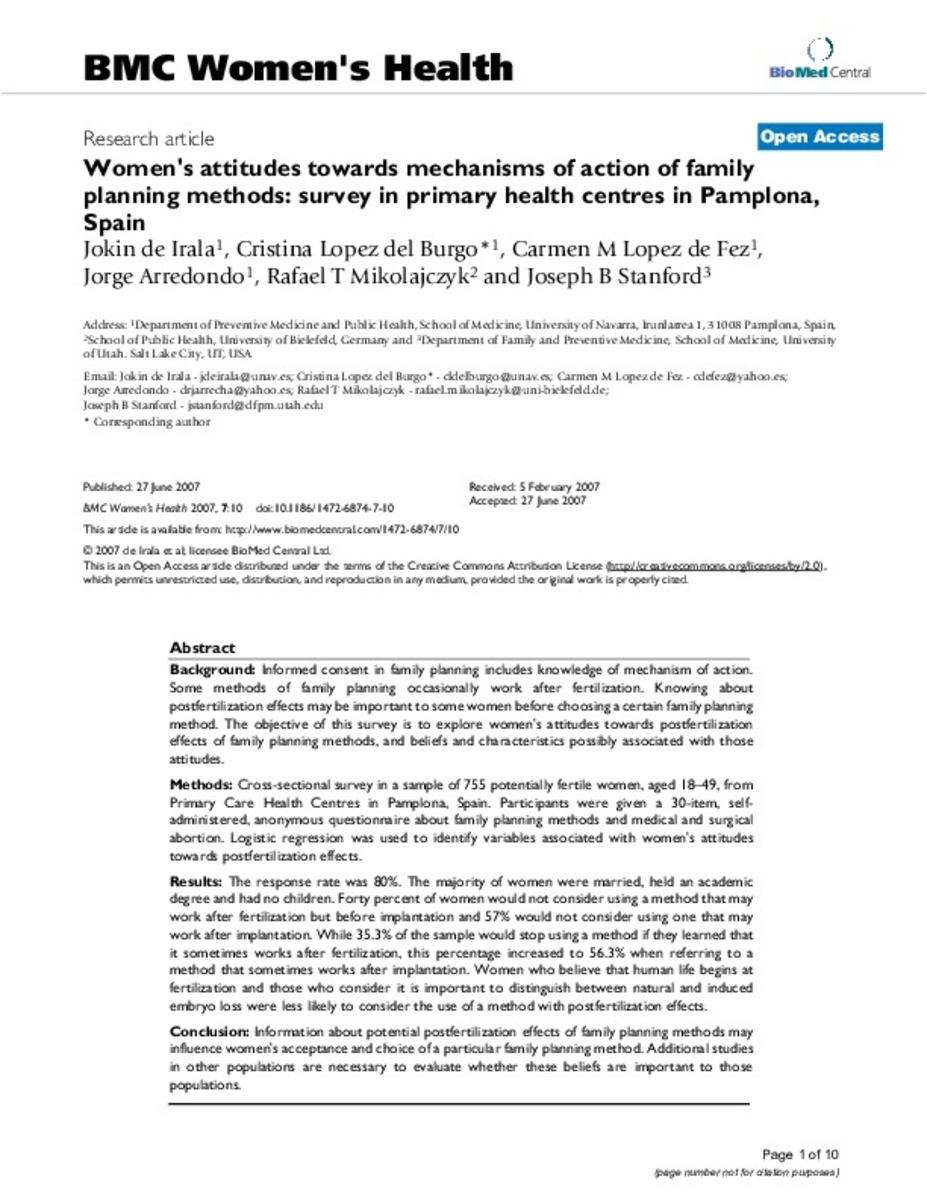Women's attitudes towards mechanisms of action of family planning methods: survey in primary health centres in Pamplona, Spain
Keywords:
Mechanism of action
Family planning methods
Citation:
De Irala J, López-del Burgo C, López-de Fez CM, Arredondo J, Mikolajczyk RT and Stanford JB. Women's attitudes towards mechanisms of action of family planning methods: survey in primary health centres in Pamplona, Spain. BMC Women's Health 2007;7:10
Statistics and impact
0 citas en

0 citas en

Items in Dadun are protected by copyright, with all rights reserved, unless otherwise indicated.








